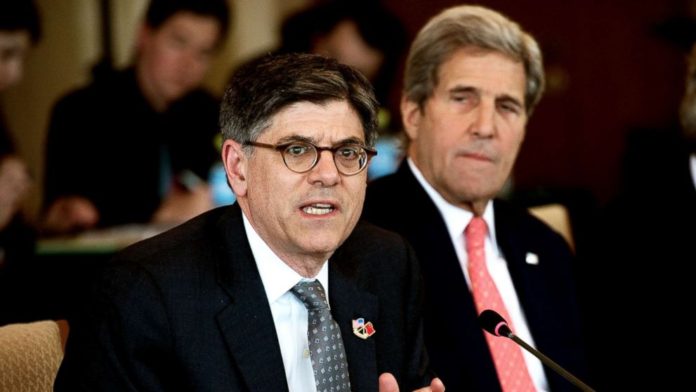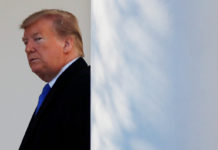The Obama administration quietly gave a special license to Iran to access the U.S. financial system despite U.S. sanctions and its own statements to the contrary, according to a new report by Senate Republicans.
While the report stops short of accusing the Obama administration of lying, the investigators who worked on the report said it was clear to them that top officials misled Congress and the American people about the transactions.
“The Obama administration misled the American people and Congress because they were desperate to get a deal with Iran,” said Sen. Rob Portman, the GOP chairman of the Senate’s Permanent Subcommittee on Investigations, who published the report.
Granting the license was not illegal, but the new disclosure gives more ammunition to critics of President Obama who say the Iran nuclear deal gave too much to that country’s regime, allowing it to fund a new wave of destabilizing activity in the region.
President Trump put nuclear sanctions back on Iran in May, violating the nuclear deal and withdrawing the U.S. from it. Those sanctions come into place in August, when the U.S.’s allies in Europe and adversaries alike face a choice between the U.S. financial system or economic penalties for doing business with Iran.
“Senior U.S. government officials repeatedly testified to Congress that Iranian access to the U.S. financial system was not on the table or part of any deal. Despite these claims, the U.S. Department of the Treasury, at the direction of the U.S. State Department, granted a specific license that authorized a conversion of Iranian assets worth billions of U.S. dollars using the U.S. financial system,” according to the report.
A former Obama administration official dismissed the charge, telling ABC News, “There was no secret effort to give Iran access to the U.S. financial system. This was a routine license to allow the transfer of funds. That’s totally in line with our well-known obligations under the deal.” Jarrett Blanc, the former State Department coordinator for Iran deal under Obama, called the report “wildly overblown” and the license “absolutely common in sanctions regimes.”
The gist is that after the Iran nuclear deal was signed and implemented, Iran was given access to its frozen assets in banks around the world, including $5.7 billion at a bank in Oman, the small country on the southeast tip of the Arabian peninsula.
Those funds were in Omani rials, and the Iranians wanted them in euros. But in order to access them quickly, they sought to exchange the funds for U.S. dollars first, before converting them to euros.
For the Omani bank, that would have violated the U.S. sanctions that remained in place after the deal that bar Iran from accessing the U.S. financial system. Iran instead approached the U.S. about a waiver — one that the Obama administration granted in February 2016, in a move that had not been previously disclosed.
No bank or institution ever completed the transaction, despite outreach from Obama administration officials to two U.S. banks, asking them to do so. Instead, Iran ultimately withdrew the funds from the account at a slower…










